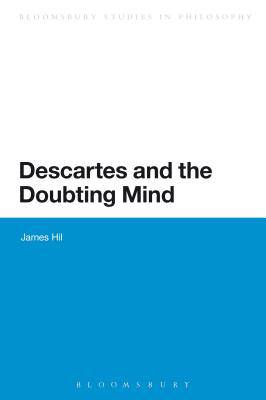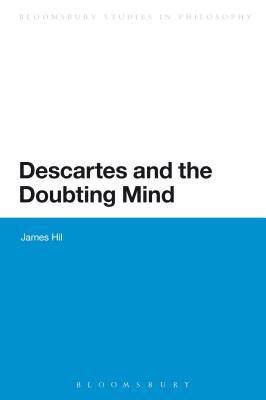
- Afhalen na 1 uur in een winkel met voorraad
- Gratis thuislevering in België vanaf € 30
- Ruim aanbod met 7 miljoen producten
- Afhalen na 1 uur in een winkel met voorraad
- Gratis thuislevering in België vanaf € 30
- Ruim aanbod met 7 miljoen producten
Zoeken
€ 89,95
+ 179 punten
Uitvoering
Omschrijving
Descartes' characterisation of the mind as a 'thinking thing' marks the beginning of modern philosophy of mind. It is also the point of departure for Descartes' own system in which the mind is the first object of knowledge for those who reason in an 'orderly way'.
This ground-breaking book shows that the Cartesian mind has been widely misunderstood: typically treated as simply the subject of phenomenal consciousness, ignoring its deeply intellectual character. James Hill argues that this interpretation has gone hand in hand with a misreading of Descartes' method of doubt which treats it as all-inclusive and universal in scope. In fact, the sceptical arguments of the First Meditation aim to lead the mind away from the senses and towards the intellectual 'notions' that the mind has within it, and which are never the subject of doubt. Hill also places Descartes' concept of mind into the wider setting of his science of nature, showing how he wished to reveal a mental subject that would able to comprehend the new physics necessitated by Copernicus' heliocentrism.Specificaties
Betrokkenen
- Auteur(s):
- Uitgeverij:
Inhoud
- Aantal bladzijden:
- 176
- Taal:
- Engels
- Reeks:
Eigenschappen
- Productcode (EAN):
- 9781472505477
- Verschijningsdatum:
- 18/07/2013
- Uitvoering:
- Paperback
- Formaat:
- Trade paperback (VS)
- Afmetingen:
- 156 mm x 234 mm
- Gewicht:
- 254 g

Alleen bij Standaard Boekhandel
+ 179 punten op je klantenkaart van Standaard Boekhandel
Beoordelingen
We publiceren alleen reviews die voldoen aan de voorwaarden voor reviews. Bekijk onze voorwaarden voor reviews.








